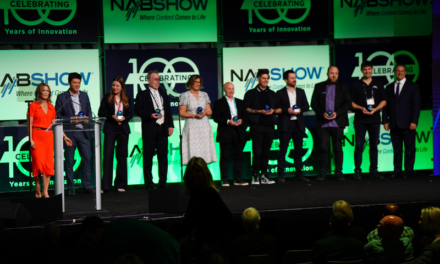London, United Kingdom – 15th April 2024 — Two years ago, Shure announced aggressive goals to increase recyclable and/or renewable packaging for new products. Shure has achieved its goal to convert to 75 percent by 2023 and is on track to grow to 90 percent by 2025 and 100 percent by 2030 for new packaging. The goal for existing product packaging in 2025 is 75 percent recyclable and/or renewable.
As part of its continuous environmental improvement efforts, Shure is a member of the Sustainable Packaging Coalition. With more than 1,500 different packaging pieces for a variety of different products, converting to sustainable packaging is a significant undertaking, especially for high-performance electronic equipment which is shipped to various locations globally to reach customers all over the world.
Key sustainable packaging initiatives include:
- Replacing thermoform trays with more sustainable, recyclable alternatives such as molded pulp.
- Reducing overall plastic materials in packaging.
- Reducing the amount of literature that accompanies the products.
- Right-sizing packaging for greater efficiency and reduced carbon footprint from shipping and storage.
Shure manufacturing plants feature robust recycling programs for cardboard boxes and wooden pallets, keeping literally “tons” of cardboard waste and nearly 5,000 wooden pallets out of landfills. Shure works with suppliers who take action on sustainability, including suppliers who use solar power and recycled water in their operations.
In addition to packaging, Shure products themselves are designed with sustainability in mind.
By 2027, more than 100 million AA batteries will have been saved from landfills because of Shure rechargeable batteries. The number is based on data calculations from customers worldwide in music production, theater, touring, education, business, government, houses of worship, and more.
Shure was the first company to offer intelligent lithium-ion batteries for wireless microphones when it was launched nearly a decade ago and it has instantly transformed sound production into a much more environmentally friendly operation. More concert halls, arenas, theaters, meeting rooms, houses of worship, schools and others are rapidly adopting the rechargeable technology.
With previous technology, disposable batteries were used to power microphones and transmitter packs. Audio engineers would frequently replace batteries – even when those batteries still had power – to ensure an uninterrupted performance with fresh batteries.
One Broadway show alone saved more than 21,000 AA batteries from being disposed of in landfills because they used Shure’s rechargeable system over the course of the run.
In the past five years, Shure estimates that it has eliminated nearly 30 million AA batteries from ending up in landfills.
The Company has also engineered its products to help with overall power consumption, using less energy in “down” modes and allowing remote monitoring of power use with Wireless Workbench Software.
Shure products are also engineered to last – from a durability and adaptive technology standpoint – avoiding costly replacements and unnecessary disposal of e-waste, even as technology evolves.
“Green isn’t just in our logo, it’s an important part of who we are,” said Chris Schyvinck, President and CEO at Shure. “We are committed to being environmentally responsible with our people, our products, our facilities, and our communities.”
A cross-functional Shure team regularly reviews international regulations, directives, and standards to ensure environmental compliance with regulations like RoHS, REACH, and WEEE. The nature of these regulations promotes sustainable electronics and electronics manufacturing.
For more information about Shure’s sustainability efforts, visit Shure’s Sustainability Site, which includes an overview on the Company’s approach to environmental responsibility.
Note: Shure calculates the ratio of the mass of recyclable packaging to the total mass of packaging for products sold. This analysis enables Shure to identify which products and packaging types contribute most significantly to non-recyclable figures.
About Shure
Shure (www.shure.com) has been making people sound extraordinary for nearly a century. Founded in 1925, the Company is a leading global manufacturer of audio equipment known for quality, performance, and durability. We make microphones, wireless microphone systems, in-ear monitors, earphones and headphones, conferencing systems, and more. For critical listening, or high-stakes moments on stage, in the studio, and from the meeting room, you can always rely on Shure.
Shure Incorporated is headquartered in Niles, Illinois, in the United States. We have nearly 40 manufacturing facilities and regional sales offices throughout the Americas, EMEA, and Asia.


